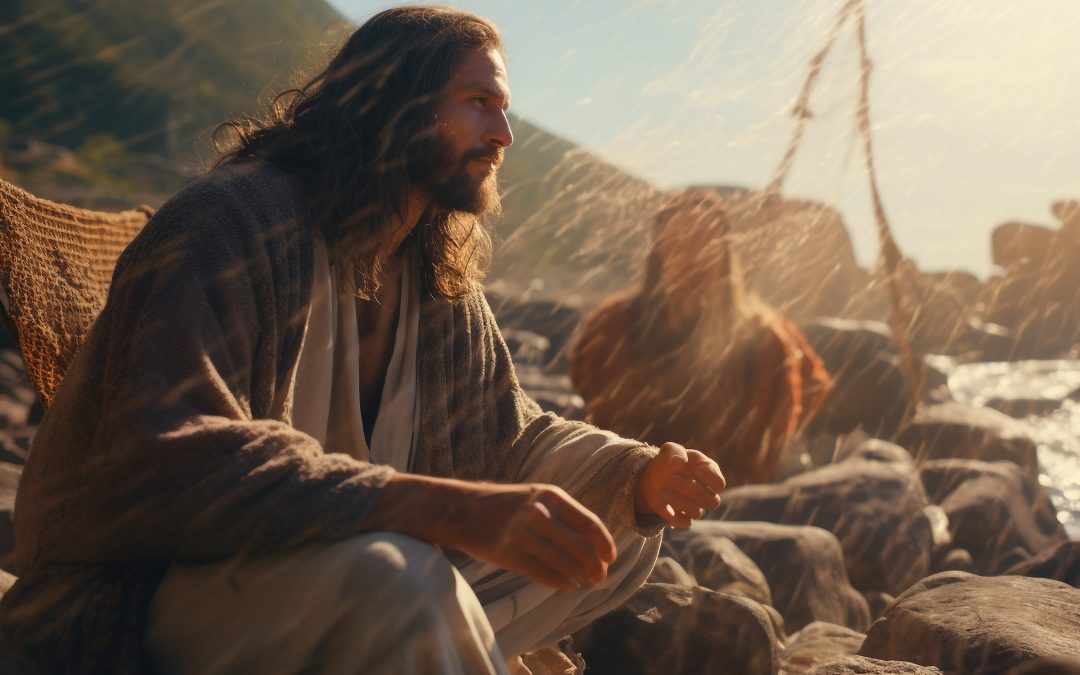Peter was a fisherman by trade. He and his brother Andrew were casting a net into the sea, when Jesus said, “Follow Me, and I will make you fishers of men” (Matt. 4:19). He was not a trained soldier, but he was ready to fight when necessary (John 18:10).
Peter learned to fish for men and fight spiritually as a leader in the early church. He was the first to teach the gospel to the Gentiles (Acts 10). He also spoke boldly when a doctrinal controversy was threatening the Gentile churches (Acts 15:7-11).
Some Christians say that if we evangelize like we should, we will not have doctrinal disputes in the church. One preacher told me that if we “keep the baptistry stirring” we won’t have time to argue with each other. Another said the reason we fight with each other is because “we’re not fishing.”
This may sound good on the surface, but is it biblical?
Jesus was a fisher of men. He said, “The Son of Man has come to seek and to save that which was lost” (Luke 19:10). He taught the multitudes in the Sermon on the Mount and took time to teach individuals like Nicodemus and the woman at the well. Some of His last words on earth were, “Go therefore and make disciples of all the nations, baptizing them in the name of the Father and of the Son and of the Holy Spirit” (Matt. 28:19). Jesus taught and practiced evangelism.
However, the Lord didn’t shun controversy. He debated Jewish leaders over the sabbath law (Matt. 12:1-8), the Corban tradition (Mark 7:1-14), and divorce (Matt. 19:1-9). Jewish rabbis had been arguing with each other for generations about these questions. He also engaged the Herodians on the issue of paying taxes, the Sadducees on the subject of the resurrection, and a lawyer on the much-debated topic of which commandments were greater or lesser (Matt. 22:15-40). Jesus never said, “I’m not going to get involved in these in-house debates. I’m an evangelist.” He certainly didn’t say this when He ran the greedy Jews out of the temple (John 2:13-16)! He did refuse to get involved in one dispute because it was not His place to do so ( Luke 12:13-14), but He was not so focused on baptizing people that He avoided controversy. And, after all, don’t we see from the start of the ministry of John the Baptist that the baptizer himself had to dispute with some Jews while he was trying to convince people to be baptized (Matt. 3:1-12; Luke 3:1-20)?
There was no missionary or evangelist greater than the apostle Paul. What did he teach and practice on this question? He preached in the city of Corinth and “many of the Corinthians, hearing, believed and were baptized” (Acts 18:8). But later this church had all kinds of internal doctrinal and practical controversies. Some had problems eating meats that had been sacrificed to idols. Some denied the resurrection of the dead. Some were taking other members to court. Some were disrupting the worship assembly. One man was committing fornication with his stepmother. But Paul never said, “I don’t have time to get involved in all this. My job is to save the lost.” Instead, he wrote the book of I Corinthians in tears to help these Christians. That is why the Lord inspired these epistles to the churches—to address doctrinal issues and other problems within the congregation.
It is true that preachers and others sometimes go to the other extreme. They are so busy dealing with every minute issue that arises between brethren that they have no time to evangelize. That is tragic. But that is no excuse to run to the opposite extreme.
The truth is that we need to be balanced. When the Jews were rebuilding the wall in Jerusalem, they also had to be ready to fight. “With one hand they worked at construction, and with the other held a weapon. Every one of the builders had his sword girded at his side as he built” (Neh. 4:17-18). Today we must teach and baptize and at the same time fight the good fight of faith.
-Kerry Duke, Vice-President of Academics & Academic Affairs


